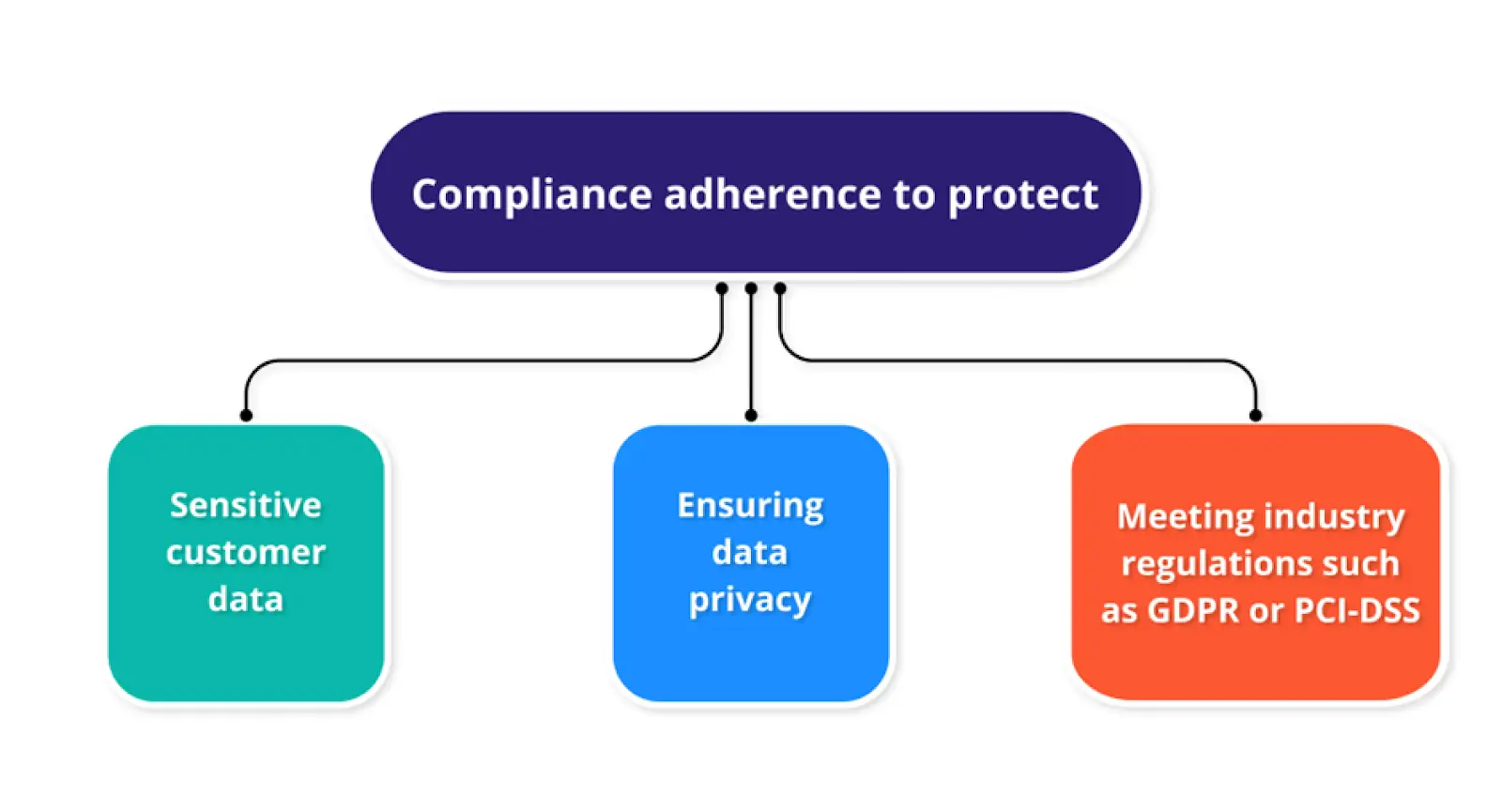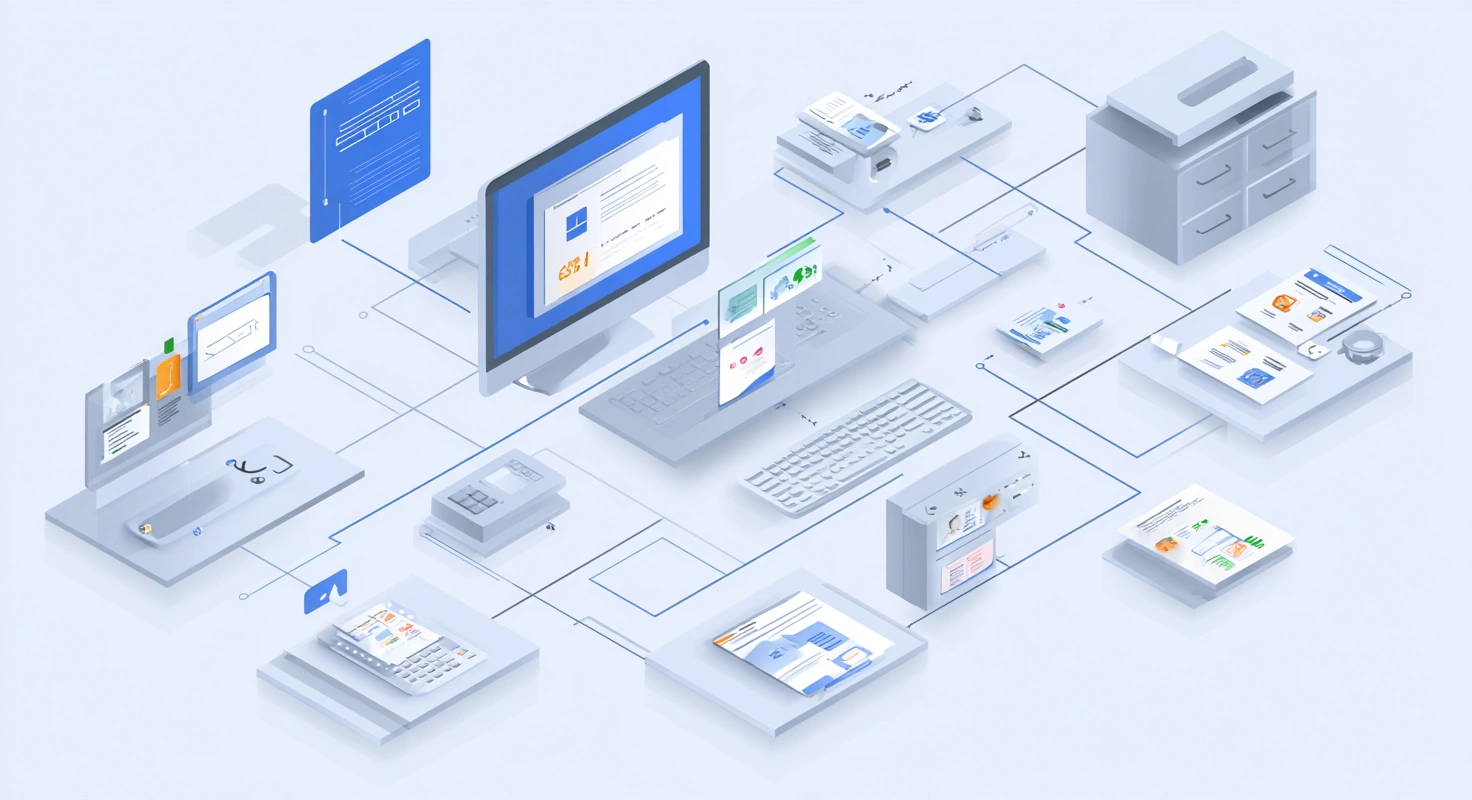Business Intelligence (BI) is a technology-driven process for analyzing data and presenting actionable information to help organizations make informed business decisions. In the context of call center business intelligence, it refers to the use of BI tools and techniques to gather, analyze, and visualize data related to call center operations and customer interactions.
Explore How Convin Boosts Call Centers With BI tools.
What is Business Intelligence?
Business Intelligence (BI) is a multidisciplinary process that encompasses strategies, technologies, tools, and practices for collecting, storing, analyzing, and presenting data to support informed and data-driven decision-making within an organization. It involves the transformation of raw data into meaningful and actionable insights, often through the use of data analysis techniques, reporting, dashboards, and data visualization tools.
Transitioning from "What is Business Intelligence?" to "What is The Definition of Business Intelligence in customer service?" allows us to delve deeper into a precise explanation of this concept.
What is The Definition of Business Intelligence?
Business intelligence definition: The primary goal of Business Intelligence is to empower organizations to gain a competitive advantage, optimize operations, and improve overall performance by leveraging data-driven insights and knowledge.
- Business Intelligence is a comprehensive approach that encompasses strategies, processes, and technologies. It involves the transformation of raw data, often from multiple sources, into meaningful and actionable insights.
- BI aids in better decision-making by providing a clear understanding of an organization's past performance, current status, and future possibilities. The primary objective of BI is to help organizations gain a competitive edge through data-driven decision-making.
Now that we've explored the definition of Business Intelligence let's shift our focus to understanding what Business Intelligence Analysis entails.
This blog is just the start.
Unlock the power of Convin’s AI with a live demo.

What is Business Intelligence Analysis?
Business Intelligence Analysis is the critical process within the broader field of Business Intelligence (BI) that involves examining, interpreting, and deriving actionable insights from data collected by an organization.
1. Data Collection
It starts with the gathering of data from various sources, which can include internal databases, external data providers, spreadsheets, and more.
2. Data Cleansing
Before analysis begins, data must be cleaned and transformed to ensure its accuracy and consistency. This step involves removing duplicates, correcting errors, and standardizing formats.
3. Data Analysis
Once the data is prepared, analysts use various data analyzing techniques and tools to examine it. This can involve statistical analysis, data mining, machine learning, and other methodologies to discover patterns, trends, correlations, and anomalies.
4. Insight Generation
The primary goal of BI analysis is to generate valuable insights from the data. Analysts identify key findings and draw conclusions that can inform decision-making processes.
5. Reporting and Visualization
Insights are often presented in the form of reports, dashboards, or visualizations to make them easily understandable for decision-makers. Visual representations help convey complex data in a comprehensible manner.
6. Actionable Recommendations
BI analysts not only provide insights but also offer actionable recommendations based on their findings. These recommendations guide organizations in making informed decisions and taking specific actions to improve performance or address challenges.
Now, let's shift our focus from understanding what Business Intelligence Analysis is to exploring some practical Business Intelligence examples.
What are Some Business Intelligence Examples?

A Business Intelligence (BI) example could be a retail company using BI tools and techniques to analyze its sales data. They collect data on product sales, customer demographics, and store performance. Through BI analysis, they identify trends like which products sell best during certain seasons or which store locations are most profitable.
This information allows them to make data-driven decisions, such as optimizing inventory levels, targeting specific customer groups with marketing campaigns, or opening new stores in promising locations.
In a call center context, a concrete example of BI could be as follows
- Data Collection: Gather data on call volume, call duration, agent performance, customer satisfaction ratings, and resolution times.
- Data Cleansing: Clean the data by removing duplicate records, correcting errors, and ensuring consistency.
- Data Analysis: Analyze the data to identify trends, such as when call volumes are highest during the day or week.
- Insight Generation: Discover that call volumes peak during lunch hours and identify which agents perform best during these peak times.
- Reporting: Present this information in a dashboard that allows call center managers to allocate resources efficiently during lunch hours.
- Action: Adjust staffing schedules to ensure more agents are available during peak times, leading to improved customer service.
Shifting our focus from Business Intelligence examples, let's explore how Business Intelligence finds practical applications within call centers.
What are The Business Intelligence Applications in Call Centers?
In the context of call centers, Business Intelligence (BI) applications are used to gather, analyze, and utilize data to enhance operations, improve customer service, and optimize performance.
1. Performance Monitoring
BI tools can track key call center metrics like call volumes, average handling times, and agent performance. Managers can use this data to monitor and evaluate the performance of individual agents and the call center as a whole.
2. Resource Allocation
BI helps in understanding call patterns, enabling call centers to allocate resources efficiently. For instance, it can identify peak call hours, allowing managers to schedule more agents during high-demand periods.
3. Customer Insights
BI analyzes customer data and feedback to identify trends and preferences. This helps call centers tailor their services to meet customer expectations, resulting in improved customer satisfaction and loyalty.
4. Quality Assurance
BI applications can monitor and analyze call recordings to assess agent interactions with customers. This ensures that agents adhere to company policies, maintain quality standards, and provide exceptional service.
5. Issue Resolution
BI can identify recurring issues or complaints, enabling call centers to address and resolve customer concerns proactively and reducing the number of incoming calls related to the same problem.
6. Agent Training
BI insights can guide agent training programs by highlighting areas where additional training or coaching is needed to enhance agent performance.
7. Cost Management
By analyzing operational data, call centers can identify cost-saving opportunities, such as optimizing staffing levels or reducing call handling times.
Business Intelligence applications in call centers help in real-time monitoring, resource allocation, customer insights, and continuous improvement. For teams looking to further enhance customer engagement and showcase success, incorporating a social wall can be a powerful extension of your BI strategy. These applications contribute to more efficient operations, better customer service, and increased overall effectiveness in the call center environment.
Now that we've explored the various Business Intelligence applications in call centers let's shift our focus to how organizations can harness the Business Intelligence resources offered by Convin!
Business Intelligence Resources Offered by Convin!
Convin offers a range of products and solutions designed to assist in setting up Business intelligence (BI) applications for call centers. These products leverage advanced artificial intelligence and natural language processing technologies to streamline and enhance various aspects of BPO operations.
1. Data Integration
Convin may offer tools or services to help organizations integrate data from various sources. This could include data from internal systems, external databases, or even unstructured data like emails and documents.
2. Real-time Analytics
Depending on their offerings, Convin could enable real-time data monitoring and analytics, allowing organizations to react quickly to changing conditions and make data-driven decisions in real-time.
3. Security and Compliance

Convin prioritizes data security and compliance, ensuring that sensitive information is protected and that the organization complies with relevant regulations.
Convin's suite of AI-powered products and solutions can significantly assist Call Centers in setting up and optimizing BI Teams. These tools enhance operational efficiency, improve customer service, ensure compliance with regulations, and provide valuable insights to support decision-making and agent training.
Be sure to book a free demo today to see firsthand how our products can help!
FAQ
1. What is business intelligence in simple terms?
Business intelligence is like a magnifying glass for data – it helps organizations turn their raw data into valuable insights to make informed decisions.
2. What is the main purpose of business intelligence?
The main purpose of business intelligence is to provide organizations with actionable information, enabling them to improve operations, enhance decision-making, and gain a competitive edge.
3. What does a business intelligence role do?
A business intelligence role involves gathering, analyzing, and presenting data to help organizations make informed decisions, often using BI tools and reporting software.
4. What is the difference between business intelligence and analytics?
Business intelligence focuses on reporting and visualization, while analytics delves deeper into data to discover patterns and predict future outcomes.
5. Which is better, business analysis or business intelligence?
Choosing between a business analyst and a business intelligence role depends on your interests; analysts focus on overall business strategy, while BI professionals specialize in data-driven insights.









.avif)